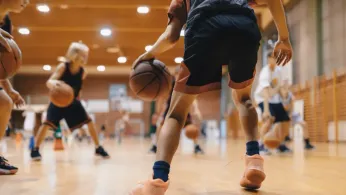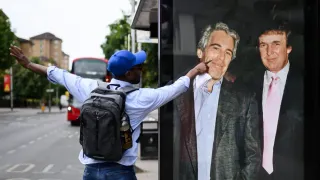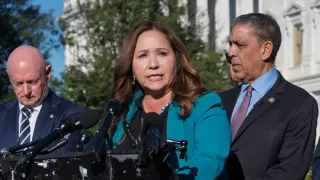
5 hours ago
Victory on the Court: St. George’s Bold Stand for Trans Youth in Basketball
READ TIME: 4 MIN.
When St. George, Maine’s select board convened on Monday night, the town hall wasn’t just full—it was electric. Parents, kids, allies, and skeptics crowded the room, their voices echoing with the kind of urgency that only comes when a community faces a defining moment. The question on everyone’s mind: Should a transgender third grader—who identifies as a girl—be allowed to play on the girls’ recreational basketball team? For a town of just over two thousand, this was more than a local sports dispute. It was about who gets to belong, who gets to play, and whose voices shape the rules of the game .
The board’s 3-2 vote in favor of inclusion sent a ripple far beyond the gym—affirming the right of transgender children to participate as their authentic selves, a right enshrined in Maine’s Human Rights Act. But the journey to that decision was anything but simple, and the emotional resonance still vibrates through this tight-knit town .
While states across the U.S. have made headlines for passing laws to bar transgender youth from sports, St. George’s debate cut through the political noise and landed on the hardwood of a third-grade rec league. In an era when national conversations about trans athletes often focus on high school or college competition, here was a community grappling with the humanity of its youngest members .
The controversy began when a group of parents, led by Emily Chadwick, presented a letter to the board, urging them to reconsider the child’s participation. “We do not feel comfortable having our daughters participate under the current structure,” Chadwick read, insisting the request was out of love and protection for her child—not anger or disrespect. The letter, while couched in concern, underscored the deep anxieties that can surface when conversations about gender identity intersect with childhood innocence and parental protection .
But this wasn’t just a one-sided debate. For every voice of concern, there were voices—some seasoned with the weariness of having fought these battles for decades—calling out the unnecessary drama. “These rights have been in place for 20 years, but here we are arguing right now where this has been happening for the past 20 years. You know, the transgender athletes are not new. This law is not new,” one advocate pointed out, reminding the room that trans kids have always been here, even if public awareness is catching up .
At the heart of the debate is the Maine Human Rights Act—a statute that leaves little room for ambiguity. The law prohibits discrimination on the basis of gender identity, and as Board Chair Jane Conrad stated: “The answer, if you don’t like the law of the state of Maine, is to lobby your legislators. We are in charge of enforcing the law” . Her words, delivered with a clarity that cut through the evening’s tension, reminded everyone that inclusion isn’t just a moral stance in this town—it’s the law.
Yet, there was vulnerability on display too. Select Board member Steve Cartwright voiced a concern that transcends legalese: “I hope people will be kind, civil and open minded at this meeting and that we can move forward as a community and value all its members, especially children” . His call for compassion and unity was a reminder that in small towns, the lines between neighbor and adversary blur quickly—and that how we treat each other matters, especially when children are watching.
St. George’s decision arrives at a time when trans inclusion in sports is under legal siege across the United States. From Utah’s court battles—where bans have been upheld and then challenged, only to land in the hands of the U.S. Supreme Court—to the patchwork of policies playing out in schools and towns nationwide, the debate is as heated as ever .
But St. George, in its own way, has shown what’s possible when a community chooses connection over division. This wasn’t a faceless policy debate—it was about a real child, a real team, and a real town finding its way through a difficult conversation. Even those opposed to the child’s participation insisted, “Everybody can be who they want to be,” with one grandparent adding, “There was no hate here” .
For LGBTQ+ readers, the story is both familiar and electrifying. It’s a reminder that queer visibility—and especially trans youth visibility—remains contested, even (and perhaps especially) in the smallest of towns. Yet, moments like these are cause for celebration: a child gets to play, a board stands up for inclusion, and a community—after hearing every side—chooses to affirm the humanity of its youngest members.
In a world where “let trans kids play” has become a rallying cry, St. George’s decision feels like a vital win—a testament to the power of showing up, speaking out, and refusing to let anyone be sidelined because of who they are. For every trans child who watches from the bleachers, and for every queer adult who knows what it’s like to be told they don’t belong, this is more than a basketball game. It’s living proof that the fight for inclusion isn’t just happening in statehouses or on the national stage—it’s happening in town halls, on playgrounds, and anywhere a kid just wants to play ball.
Because in St. George, at least for now, every child gets to take their shot.






